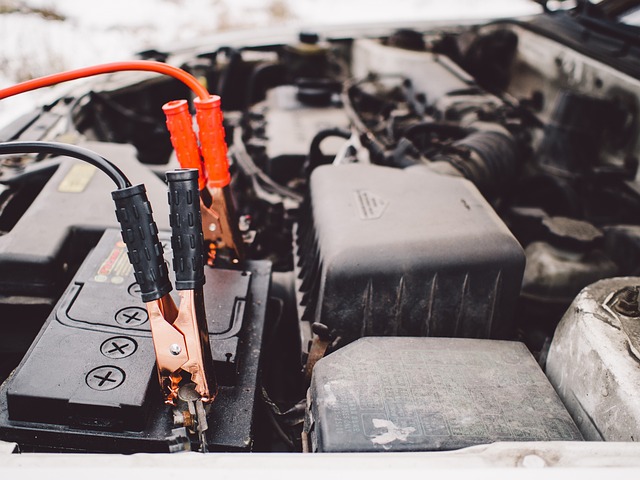Replace Car Battery Responsibly for Vehicle Reliability and Environmental Protection
Knowing when to replace your car battery is key to maintaining vehicle reliability, as factors like age and weather can impact its lifespan. Look out for starting difficulties or warning lights as early signs. Regular checks ensure optimal performance. Responsible disposal and recycling of old batteries are vital for environmental health, with many auto parts stores accepting used batteries for proper recycling. Modern lithium-ion batteries offer improved performance and longer lifespans, while auto manufacturers are introducing interchangeable battery packs for easier disposal and reduced environmental impact. When replacing your car battery, opt for eco-friendly solutions like advanced battery technology and expanding recycling programs.
Tired of old, dead batteries piling up? Discover the best strategies for dealing with spent car batteries. This guide breaks down everything you need to know about replacing your car battery—when and how. We’ll explore responsible disposal methods for safe environmental impact, delve into recycling options, and even introduce alternative power sources transforming the automotive industry. Get ready to stay charged and green!
- Understanding When to Replace Your Car Battery
- Responsible Disposal and Recycling of Old Batteries
- Exploring Alternatives to Traditional Car Batteries
Understanding When to Replace Your Car Battery

Knowing when to replace your car battery is essential for keeping your vehicle in top shape and avoiding unexpected breakdowns. While batteries typically last around 3-5 years, several factors can impact their lifespan. One of the primary indicators is the age of the battery; as it ages, its capacity to hold a charge decreases. If you’ve noticed that your car struggles to start or has been displaying warning lights related to the battery, these could be early signs that a replacement is needed.
Additionally, extreme weather conditions can accelerate battery degradation. Living in an area with hot summers or cold winters may require more frequent battery replacements. Corrosion on battery terminals is another red flag; it can prevent a strong connection, causing your car’s electrical system to work less efficiently. Regularly checking the condition of your battery and addressing any issues promptly will help ensure reliable performance when you need it most.
Responsible Disposal and Recycling of Old Batteries

When it comes to old batteries, responsible disposal and recycling are crucial steps in protecting both the environment and public health. Depending on where you live, there might be specific guidelines for disposing of batteries, especially when it comes to car batteries due to their size and hazardous materials. Many auto parts stores will happily take back used car batteries and recycle them properly. This is a convenient option for consumers as it ensures these potentially harmful items don’t end up in general waste streams.
Recycling facilities have the capability to break down different types of batteries, extracting valuable materials that can be reused. This process not only reduces the environmental impact but also conserves natural resources, as recycling a car battery can save up to 90% of the energy required to produce a new one. It’s an important step in sustainable living and ensures that old batteries don’t contribute to land or water pollution.
Exploring Alternatives to Traditional Car Batteries

In today’s world, exploring sustainable alternatives to traditional car batteries is more important than ever. As the demand for energy-efficient and eco-friendly solutions grows, innovators are constantly seeking better ways to power our vehicles. One emerging trend is the development of advanced lithium-ion batteries, which offer improved performance and longer lifespans compared to conventional lead-acid batteries. These modern batteries are not only more efficient but also lighter and compact, making them ideal for a range of applications, from electric vehicles to portable electronics.
When considering a replace car battery approach, it’s crucial to look beyond the traditional options. Many auto manufacturers are now offering interchangeable battery packs designed for easy installation and disposal. These innovative systems not only reduce the environmental impact but also provide owners with the convenience of quick upgrades or replacements. Additionally, recycling programs for old batteries are becoming more widespread, allowing drivers to contribute to a circular economy by ensuring that used batteries are responsibly reclaimed and refashioned into new products.
When considering what to do with old batteries, responsible disposal through recycling programs is key. While exploring alternatives like hybrid or electric vehicles can reduce battery waste, understanding when to replace your car battery ensures optimal performance and safety. By staying informed about these aspects, folks can actively contribute to a greener future, minimizing the environmental impact of discarded batteries.
